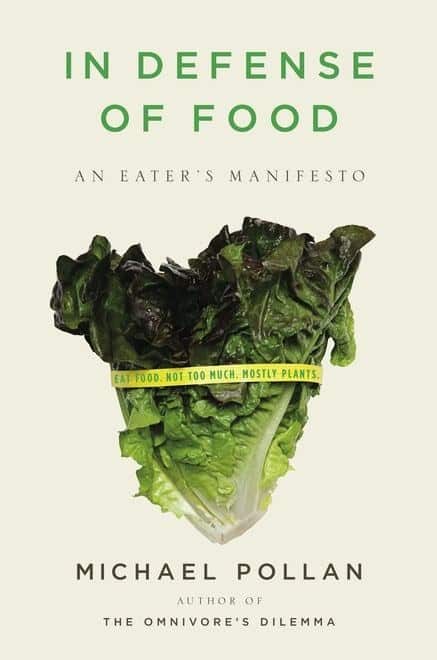 I just finished reading Michael Pollan’s Omnivore’s Dilemma about a month ago and although I enjoyed the book thoroughly, the irony of feeling more apprehensive after reading his book about what foods to eat did strike me quickly.
I just finished reading Michael Pollan’s Omnivore’s Dilemma about a month ago and although I enjoyed the book thoroughly, the irony of feeling more apprehensive after reading his book about what foods to eat did strike me quickly.
This new found awareness for the foods and food choices we make when we go through the grocery aisles led me to pick up In Defense of Food from yes, another airport bookstore. It is one of the things I do that defies my financially savvy rationale which I have now given into. It is one part of my life which I will indulge and have the freedom to choose and read on a whim, paying list price for this luxury.
The book is full of common sense advice on general rules of what to buy and how to eat. It doesn’t tout some magic ingredient or prescribe a meal plan. Instead, Michael notes that eating real foods is important, lots of fresh vegetables and quality over quantity. The acid test he proposes is to have your grandmother, or maybe your great grandmother sitting on your shoulder as you peruse the grocery aisles. If there are foods or food ingredients she would not recognize, it is probably recommended you stay away from them.
Besides giving advice general rules of how to eat, what sets In Defense of Food apart from a self-help health book is the historical look at the politics of food legislation in the US and how it has impacted what we see in grocery stores and what we grow. In particular, I found the rise of soy beans as a major protein source to be fascinating and required me to do further research on some of the myths that Pollan dispelled.
If you enjoyed Ominivore’s Dilemma but was left with food anxiety, the sure remedy is In Defense of Food.
Julia Child I think would be happy to hear that Michael Pollan also defends the use of butter.


